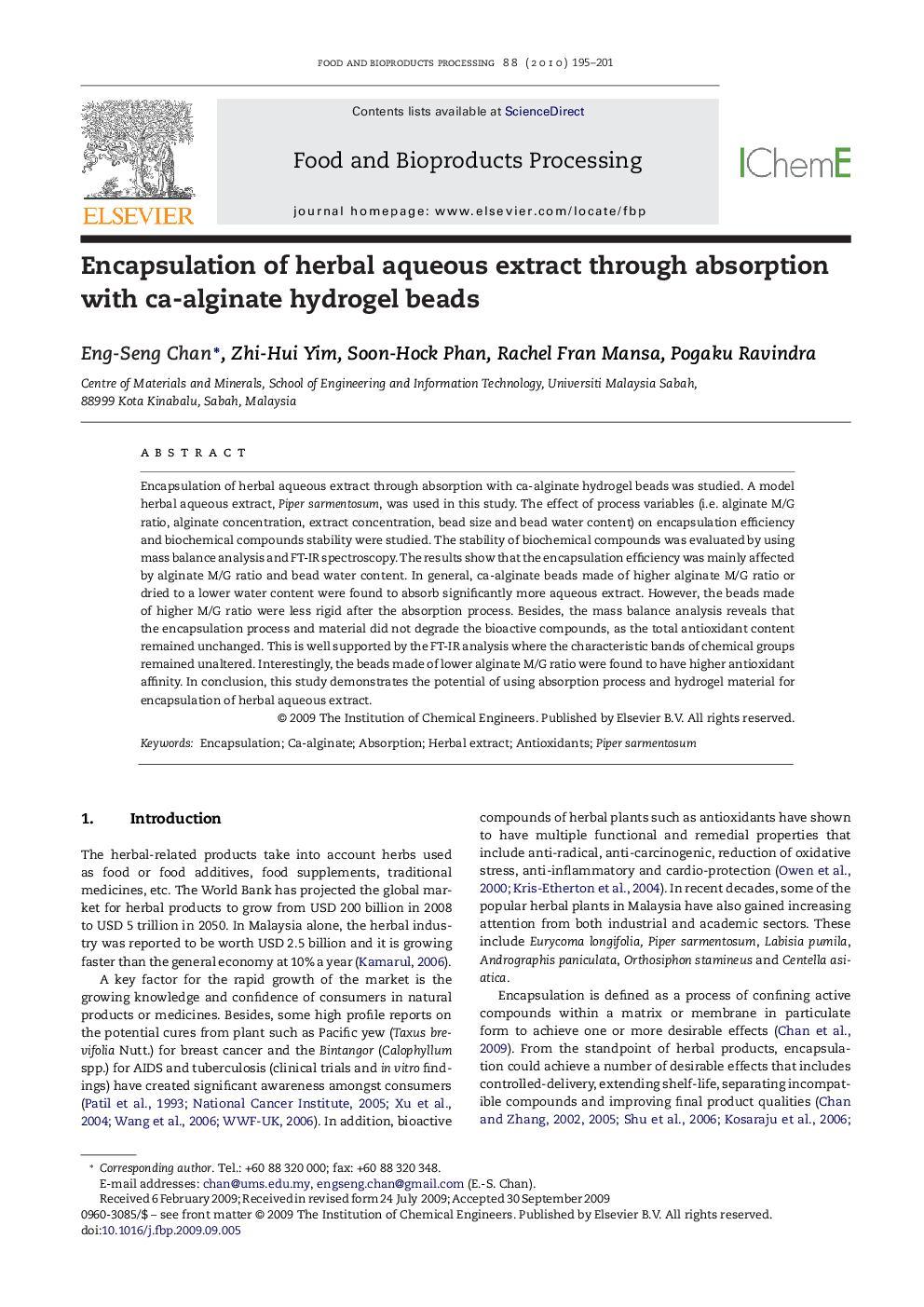| Article ID | Journal | Published Year | Pages | File Type |
|---|---|---|---|---|
| 19535 | Food and Bioproducts Processing | 2010 | 7 Pages |
Encapsulation of herbal aqueous extract through absorption with ca-alginate hydrogel beads was studied. A model herbal aqueous extract, Piper sarmentosum, was used in this study. The effect of process variables (i.e. alginate M/G ratio, alginate concentration, extract concentration, bead size and bead water content) on encapsulation efficiency and biochemical compounds stability were studied. The stability of biochemical compounds was evaluated by using mass balance analysis and FT-IR spectroscopy. The results show that the encapsulation efficiency was mainly affected by alginate M/G ratio and bead water content. In general, ca-alginate beads made of higher alginate M/G ratio or dried to a lower water content were found to absorb significantly more aqueous extract. However, the beads made of higher M/G ratio were less rigid after the absorption process. Besides, the mass balance analysis reveals that the encapsulation process and material did not degrade the bioactive compounds, as the total antioxidant content remained unchanged. This is well supported by the FT-IR analysis where the characteristic bands of chemical groups remained unaltered. Interestingly, the beads made of lower alginate M/G ratio were found to have higher antioxidant affinity. In conclusion, this study demonstrates the potential of using absorption process and hydrogel material for encapsulation of herbal aqueous extract.
